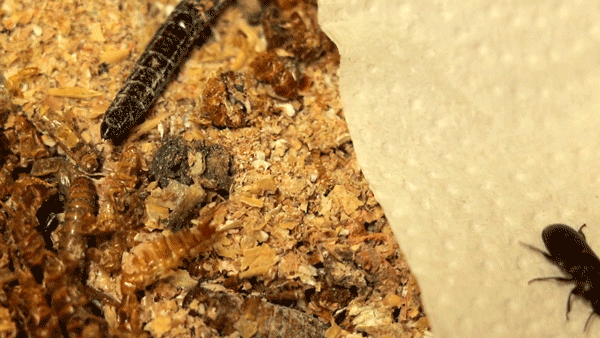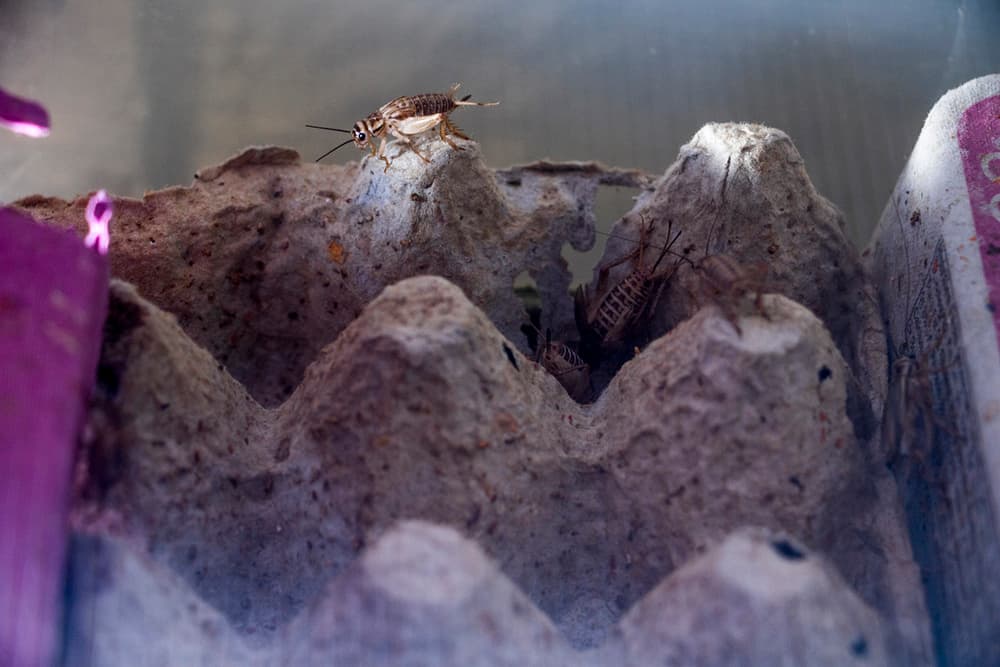
On a Friday afternoon, Brownie Troop 67478 files into a shipping container to eat crickets. The modest facility, hidden just off Morrison Road, is the global headquarters of the Rocky Mountain Micro Ranch, an urban farm that raises bugs for human consumption.
"Who wants to see the mealworms?" asks Wendy Lu McGill, micro ranch co-founder. Nearly every kid raises her hand in delight. Who wants to try a cricket? Fewer hands this time.
Claire, who's 7, considers the whole cooked cricket in her hand for a good long while. Then she makes a face and passes it off to another girl who eagerly pops it into her mouth.
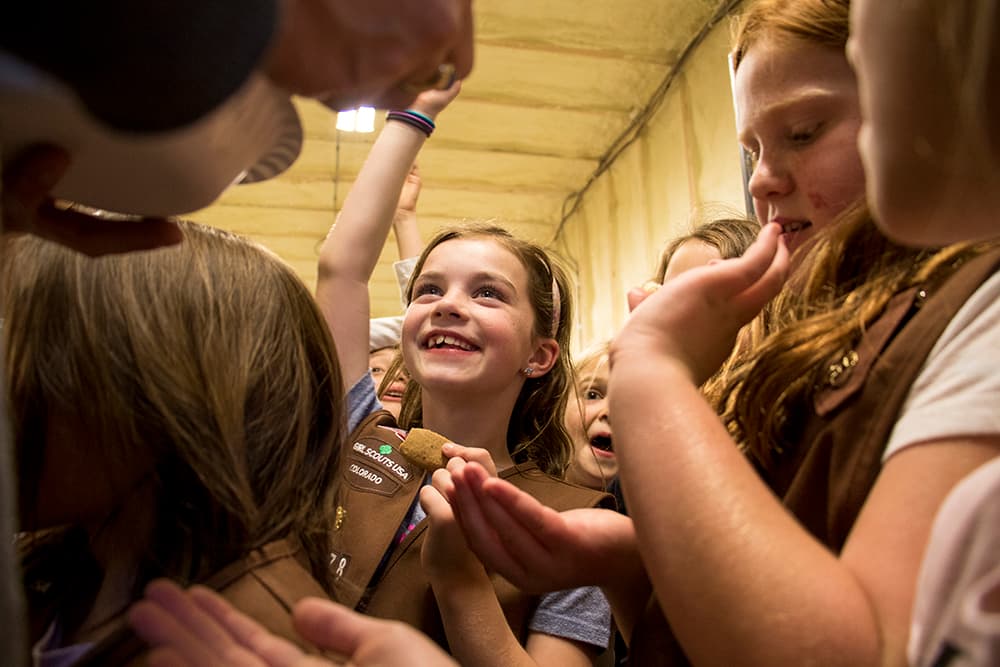
The range of reactions to McGill's unorthodox snacks demonstrates that some people are on board with bugs as food. Getting people like Claire to overcome the "ick factor" is McGill's daily campaign.
And why? The Rocky Mountain Micro Ranch's vision is to provide nutrition-packed food to the world without the large environmental footprint associated with raising livestock. They think they can make an impact on American sustainability, but only if they can bring insect fare into the mainstream.
How do you do that? Make those bugs fancy.
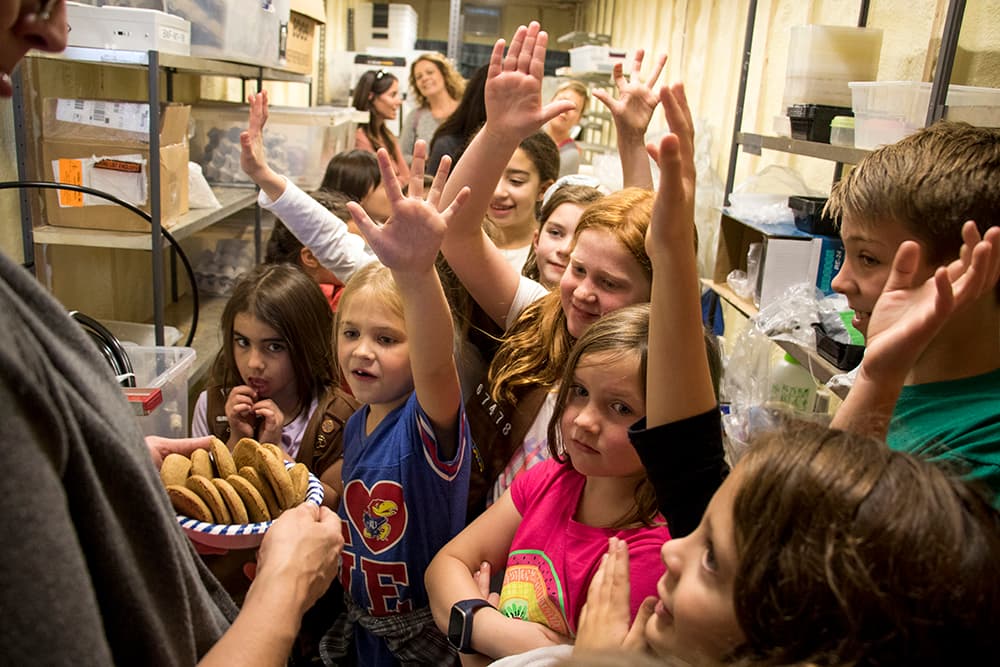
McGill believes she can inject her products into Western culture if it's first presented as a luxury item. And she's well on her way. Hip Denver restaurants Linger, Leña, Comida and El Jefe already have already included her "microlivestock" on the menu.
On Tuesday, Rocky Mountain Micro Ranch is hosting a high-end insect-eating event at El Five, aptly timed as the Entomological Society of America holds their annual conference in Denver.
What's wrong with steak?
The Food and Agriculture Organization of the United Nations, or FAO, estimates that a little more than a quarter of all land on earth (that's not covered in ice) is used for raising livestock. Of all crops grown, they say 33 percent is dedicated to livestock feed production. Globally, they say, livestock production is responsible for 50,000 square miles of forest clearing each year, which creates rippling problems down the line for soil health, water availability and biodiversity.
As livestock production gets denser (think industrial feedlots) and closer to settlements and involves more antibiotics, there's an increased risk of human disease.
The good news is Americans are tuned into the problems associated with beef production. A report by the Natural Resources Defense Council estimates Americans ate 19 percent less beef between 2005 and 2014. That's the equivalent, they say, to the carbon footprint from 39 million cars' tailpipes.
Where might all those people find tasty protein now that they're shifting away from red meat? Why not bugs?
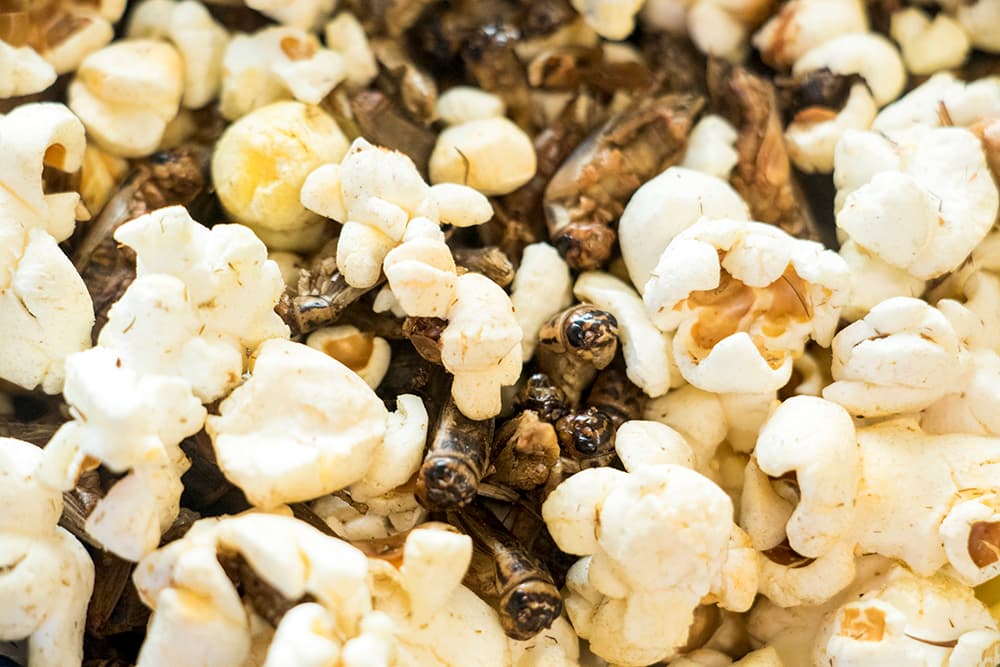
Driven to feed
"My parents were hippies,” Wendy McGill says as she stepped out of her all-electric Nissan Leaf to unlock the ranch in the shipping container fitted with a solar heater on top.
Inside is a chorus of chirping. Plastic tubs, furnished with egg crates, are crawling with the latest generation of adult crickets.
The never-ending cricket chorus inside the Rocky Mountain Micro Ranch.
McGill says she's always been interested in food supply and sustainability. When she learned that bug ranching could be an eco-friendly way to provide nutrition, she said, a light bulb went off.
"It hit on all of the areas that are important to me," she said. "Access to food, access to nutrition, and a way of farming that’s a lot better environmentally. All those things together blew my mind."
While bugs have seen some large-scale production for livestock feed, human-focused supply is still largely untapped. Five years ago, McGill set off to make insect farming a reality. Today she and her partner, Kyle Richard Conrad, are still working out the kinks in their system, but they hope to reach capacity churning out 250 pounds of crickets and 200 pounds of mealworms monthly. They're also beginning to experiment with waxworms, tiny critters that only eat honey and therefore have a pleasant sweet taste to them.
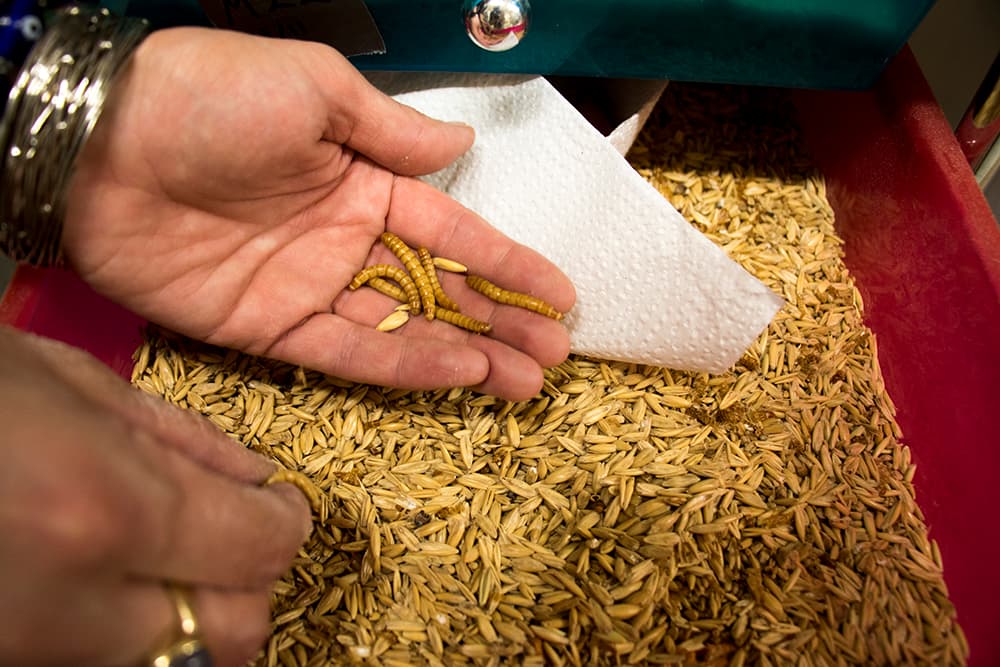
"I have always been really invested in feeding people, and I’ll never get over the fact that we raise enough food to feed everybody and not everybody eats, and not everybody eats well." Thinking of the future, she said, "If we’re not doing that well now, we’re super screwed as we have less resources and more people."
It takes 6-8 weeks to bring a cricket crop to adulthood. Right now they're bringing some crickets in as breeding stock to beef up their herd. McGill only serves up the insects born in her facility to humans because she wants to know exactly what they've eaten before they hit the marketplace.
When a cricket generation is ready for harvesting, they're picked out of their boxes and frozen for 48 hours, then they're ready for the oven.
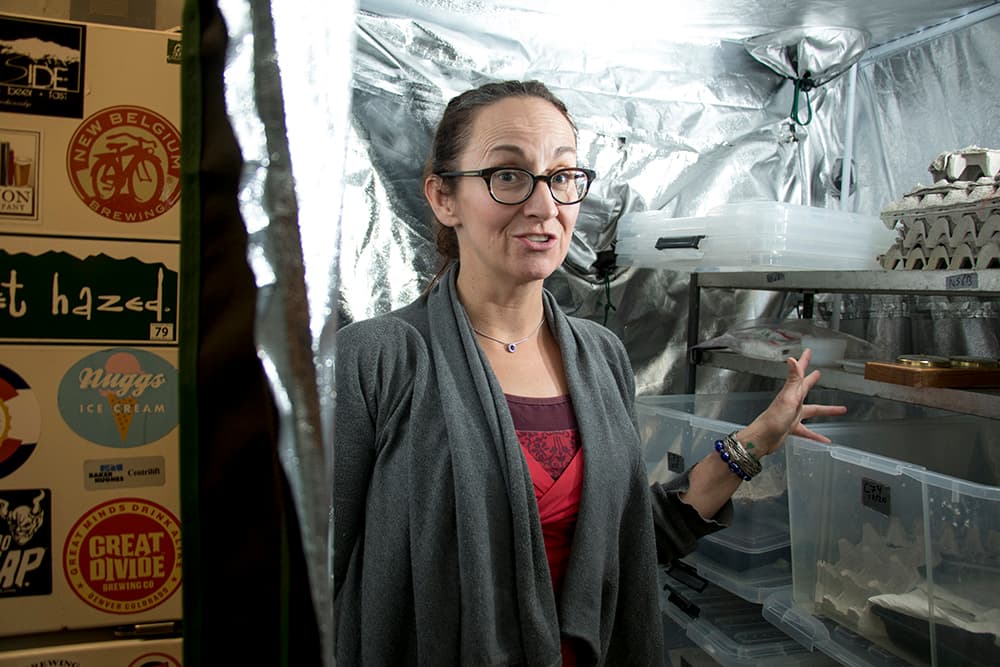
If it's tasty they will come
For the girl scouts, McGill has cookies made with cricket powder (like bug flour) and popcorn mixed with whole baked crickets.
And she has something special to try, too: chirpy jerky, a new BBQ-flavored product that she's been developing with a food scientist. It's made from cricket powder, chopped crickets and a whole lot of vegetables. McGill hopes the recipe might get picked up by a national distributor and put her business on the map.
Making it tasty, she says, is key.
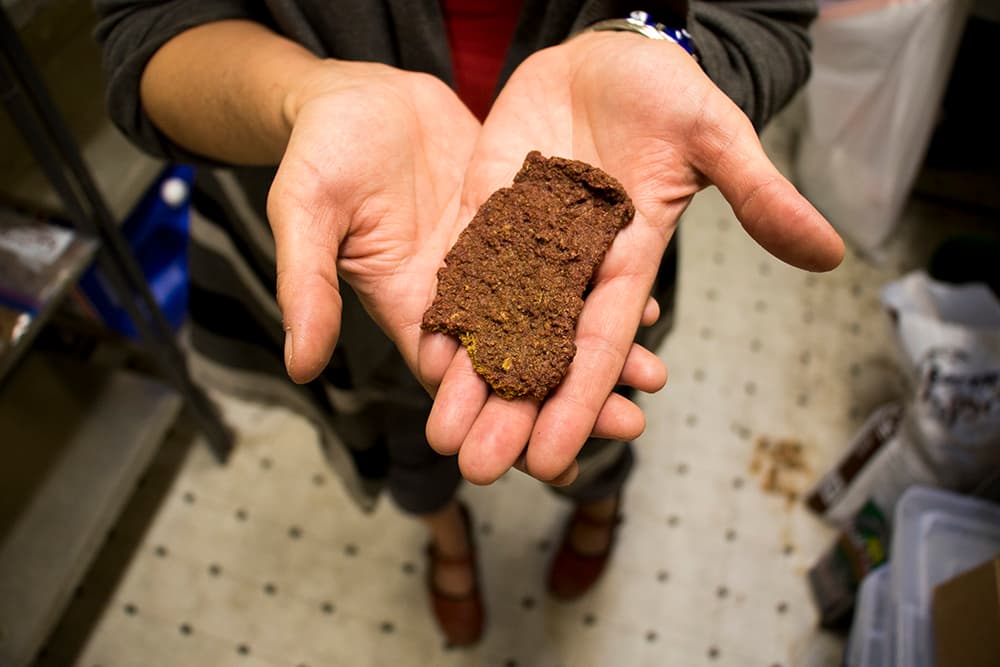
“Food with cultural resistance has to taste good,” she said. If the end product isn't familiar and fun, she'll never convert the masses into buying into her sustainable endeavor.
That's why getting the backing of Denver's food scene is so important. And it seems some were more than ready when McGill came around.
Jeremy Kittelson, culinary director for Edible Beats, said the sustainable message behind insect farming was a huge attraction for his company, which is the umbrella organization over Linger and El Five.
Linger has served four iterations of cricket dishes over two years. Kittelson said they weren't interested in it as a gimmick. As a global street food eatery, he said, insects have an integral place on the menu. It's not unusual to find cricket dishes in other parts of the world. Beyond that, he said, the restaurant is committed to celebrating "a food source that's next-level sustainability."
Their patrons take it seriously, too. When Linger took crickets off the menu for operational reasons this summer, he said, guests were dismayed. Though their operation is still in its early stages, it's a sign that Rocky Mountain Micro Ranch might be on the right track to supplying an insect-hungry future.
